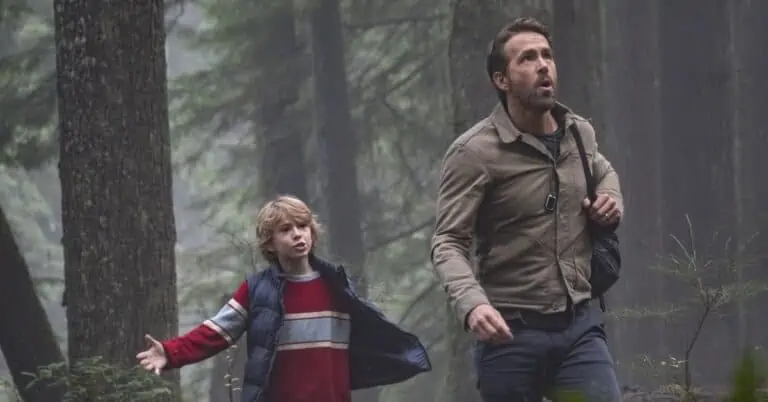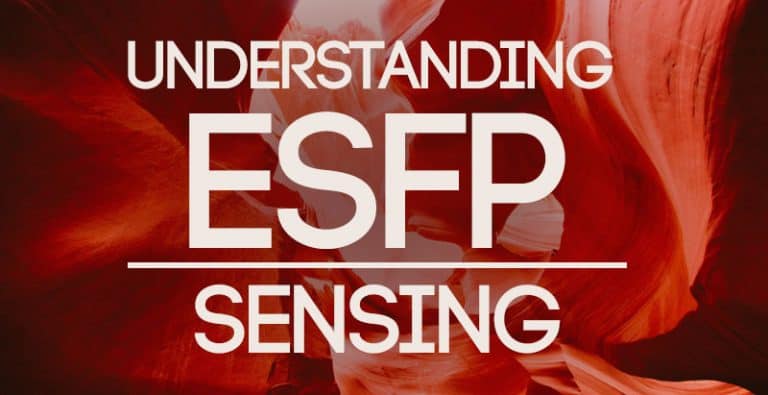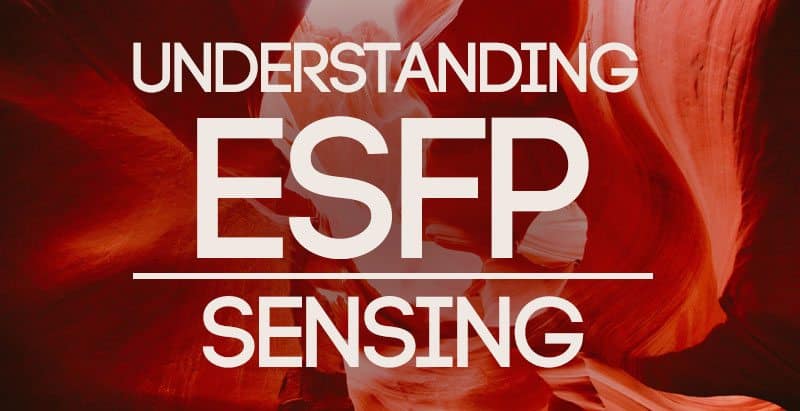The Teenage Versions of Every Introverted Myers-Briggs® Personality Type
Not sure what your personality type is? Take our new personality questionnaire here. Or you can take the official MBTI® here.
The ISFP
Teen ISFPs yearn for independence and autonomy. Though deeply tied to their families, they retreat more into their quiet places during this time of life. They hate having their privacy intruded upon, and will often percolate over worries, fears, and hardships rather than openly sharing them. They are deeply creative and are more confident in expressing themselves creatively. Their increasing boldness will help them to pursue group activities like team sports, drama club, or band.

Big decisions can be very stressful for ISFPs at this age. They often feel like the walls are closing in on them, especially as adults try to pressure them into commitments. To deal with this, ISFPs often seek more and more alone time to try to process their feelings. Sometimes an outside counselor or guide can be an encouragement to them; someone who will not take what they have to say personally but be a non-biased sounding-board for their decisions and concerns.,
As ISFPs advance through the teen years, they become more physically adept and conscious of relevant details. Their decisions become increasingly pragmatic, but they also (like all teens) can struggle with impulsivity. They will work at fine-tuning their values, desires, and sense of purpose in life. They will also experience greater empathy and a stronger sense of determination in standing up for beliefs or causes that are important to them.
The Struggles:
- Superficial relationships. ISFPs crave depth.
- The pressure to make long-term decisions.
- Wanting independence, but craving intimacy.
- Wanting freedom, but still having a lot of rules and limits.
The Needs:
- Hands-on, sensory experiences and adventures.
- Loving, gentle discipline.
- Alone time, especially after coming home from school.
- Empathy and emotional support.
- Physical affection.
- Clear, specific instructions and help with homework.
- Respect for their privacy.
- Help with time and money-management skills.
The ISTP
Adolescent ISTPs crave an increasing amount of alone time and privacy. They work on their own terms, live by their own rules, and usually care little about external standards. Their inner principles and standards are the driving factor. Rather than perform for others, they have to challenge themselves and live up to their own definition of success. It can exasperate parents to realize that their ISTP teens have so many talents but feel no inclination to publicize them. At the same time, teen ISTPs enjoy a challenge and crave opportunities to prove themselves independent. Physical risks are especially attractive at this age; many young ISTPs pursue individual interests like rock climbing, archery, skiing, or parkour. In communication, teen ISTPs can be hard to read. They tend to be reserved, detached, and hesitant to share their true feelings. They tend to prefer quiet, non-intrusive displays of affection to physical affection. Creating a favorite meal, writing a letter, or doing a recreational activity can all be more satisfying ways for them to receive love than through emotional demonstrations.
The Struggles:
- Boredom with the increasingly theoretical nature of classroom studies.
- Having their detached nature misinterpreted as “meanness.”
- Having to sit still during long classroom lectures.
- Risk-taking behavior that can result in injury.
- Dealing with the increasingly sensitive nature of peers (especially for girls).
The Needs:
- Clear, direct, specific communication. No lecturing.
- Privacy and private correction rather than public “call-outs.”
- Unstructured, solitary time to pursue their own interests.
- Parents who will spend one-on-one time doing things that interest them.
- Understanding parents who don’t misinterpret their reserved nature.
- The ability to prove themselves and make independent choices.
The ISFJ
Adolescent ISFJs grow towards independent thinking in the teenage years. While they enjoy the security of traditions and family, they will increasingly question authority (often through inner examination) to try to determine what they truly believe outside of external pressures. In the teen years, ISFJs tend to experience more openness to new experiences and risks. While they are still cautious and hesitant about change, they realize that experience is one of their greatest teachers. They learn quickly through experience and enjoy having real-world knowledge and memories stored for later use. Being responsible and competent is important to teen ISFJs. They enjoy getting their homework done on time and planning for their future careers and education. They usually care about the impression they have on others, so peer pressure can be especially difficult for them during these times. Wearing the right clothes, having their hair neatly done, these kinds of things are usually important to them.
The Struggles:
- Increasing deadlines and expectations from others.
- Desire to question beliefs and rules, but hesitance to create inner or outward conflict.
- Difficulty with peer pressure. Wanting to fit in, but also wanting to stay true to their values.
- Increasing change and emotionally-risky situations. Dating and friendship issues can be all-consuming.
The Needs:
- Empathy and guidance from parents during emotionally trying times.
- Support when they have to deal with change, especially when it’s unexpected.
- A clear, specific schedule that they can count on.
- Parents who encourage them to consider alternatives when they get “tunnel vision” or can only see one way to do things.
- When they are anxious about new situations, people who can remind them of times they’ve been brave in the past.
- Enough sleep and adequate nutrition. These types tend to feel inner-body discomfort more strongly than others.
Read This Next: In-Depth ISFJ Personality Profile
The ISTJ
Teen ISTJs crave a great deal of independence, privacy, and personal space. They will often retreat to their rooms as soon as they get back from school to finish up their homework and delve into their interests or hobbies. They often keep their rooms organized, with a place for everything, and every comfort easily within reach. As adolescent ISTJs seek more privacy from family, they experience greater confidence and a desire to involve themselves in group activities. They might push themselves to join sports teams, extra-curricular activities, or even go to parties. They crave one or two close friendships where they can share thoughts freely. One-on-one conversation and interaction appeal to them much more than large group gatherings. They often have very little interest in events like prom, dances, and school picnics. When it comes to school, ISTJs tend to finish their homework as soon as possible so that looming deadlines don’t create anxiety. They enjoy staying ahead of schedule and are usually very careful and detail-oriented in their work. They are also cautious with money and tend to save a lot rather than impulsively buy the latest, trendiest gadget. They approach life with caution and hesitant curiosity.
The Struggles:
- Dealing with fickle, wishy-washy friends and individuals.
- Less time to be alone and pursue their own hobbies.
- Difficulty with seeing alternatives. May get “tunnel vision” when focusing on a goal or outcome.
- Superficial relationships when they crave something of lasting value.
- Navigating dating and romantic relationships and breakups. They have a hard time with the often transient nature of teenage romances.
The Needs:
- Stability at home. Knowledge of what they can expect and when.
- Guidance when dealing with new situations (dating, college choices, SATs, etc,.)
- Recognition for their competence and responsibility.
- A quiet, distraction-free environment where they can work on their homework.
- Respect for their privacy.
Read This Next: 10 Things You’ll Relate to if You’re an ISTJ
The INTP
During adolescence, teen INTPs crave much more privacy and independence than before. Extremely reserved, especially about emotional subjects, they can appear dismissive to parents who try to engage in heart-to-heart conversations. These types are often misunderstood in the teen years. While they care deeply for their families and friends, they are unlikely to express those feelings openly. They tend to feel awkward and unsure of themselves in emotional situations and their discomfort might be misinterpreted as anger or disinterest. INTPs are typically intelligent and creative, but they care little for external measures of success. Getting a good grade or pleasing their teachers usually means far less to them than living up to their own internal standards. Their opinions are not easily swayed by others, regardless of the authority the other individual has. This helps them to avoid things like peer pressure and “keeping up appearances.” However, their natural curiosity and interest in novelty can tempt them to try things that might be dangerous or risky. Many INTPs are fascinated by drugs or novel experiences, but if they have been taught logical reasons to stay away from them then they are less likely to pursue.
INTP adolescence isn’t all struggles and misunderstandings, however. These types are increasingly creative and enjoy an endless love of learning. Their imagination seems to explode during this age and they experience more confidence in their creative pursuits. They may express this creativity through art, building their own business, science experimentation, or joining band or drama team!
The Struggles:
- Being misunderstood. This is especially a problem for INTP females.
- Not prioritizing external measures of success, to the dismay of teachers and parents.
- Being underestimated because they often internalize their reasoning.
- Difficulty in dealing with emotionally sensitive peers.
- Stress over increasing social demands and expectations.
The Needs:
- Increased privacy but present, attentive parents.
- Non-forceful guidance about the long-term benefits of good grades.
- Opportunities to debate and argue respectfully.
- Plenty of books and creative supplies.
- Opportunities to prove their competence.
- Earned ability to have increased authority over their own choices.
Read This Next: 3 Weird and Wonderful Secrets About the INTP Personality Type
The INTJ
In the teen years, INTJs experience a desire to be more outgoing than they were previously. They feel a need to put themselves out into the world and make a more distinct difference and impact. This doesn’t mean they join all the parties and clubs they can, but it does mean they may pursue friendships, debate teams, and group learning with more stamina and enthusiasm than they did previously. At home, INTJs desire a lot of privacy and time to themselves. They are typically reserved about sharing their emotions and deeper struggles. Bonding with parents is usually done over a shared interest; as always, INTJs love to learn and will enjoy intellectual challenges and thought-provoking questions.
As INTJs reach adolescence, they develop more interest in fairness and justice. They are drawn to alternative ways of thinking and enjoy playing devil’s advocate to the rules and expectations of authorities. They enjoy being different, going against the flow, and finding their own unique path in life. Parents of INTJs might be nervous as their children question the beliefs and rules they’ve been raised with and become more individualistic and rebellious. It’s important to remember that this is a normal part of adolescence and not something to be afraid of. Being attentive and explaining rules and safe choices in a calm, logical manner will help INTJs to respect their parent’s instruction rather than resent it.
The Struggles:
- Increased need for privacy and independence, which results in pushing against the reigns of parents and authorities.
- Dislike of being “fussed over” or asked a lot of questions.
- Dealing with the increasingly shallow, fickle nature of teenage relationships.
- Exasperated parents who are tired of arguing.
The Needs:
- Time alone to sort through thoughts, especially after school.
- Time to adjust to changes, and a heads-up on upcoming events.
- Sources of intellectual stimulation (Books, Videos, Trips to the Museum).
- Open, rational conversation about controversial subjects.
- A physical outlet for stress.
- Fair, consistent rules and discipline.
Read This Next: 3 Weird and Wonderful Secrets About the INTJ Personality Type
The INFP
Adolescent INFPs often struggle with feeling misunderstood and overwhelmed by deep, searching feelings. They want to find their unique place in the world and they want to make their idealistic visions a reality. However, it seems to them that their peers are all distracted by superficial relationships, objects, and trends. Naturally seeking independence at this age, INFPs feel a widening gap between themselves and their parents. While they enjoy their increasing autonomy, this process is simultaneously painful. They crave intimacy with their families and the end of childhood can feel like a great loss to them. Their sadness and confusion over this can come across as anger and moodiness, provoking even more misunderstandings. Because INFPs often feel so misunderstood, knowledge of personality type can be very comforting to them. Having a framework for understanding themselves and others can help them to feel less alone and confused by the differences.
The natural creativity and open-mindedness of the INFP becomes more advanced in the teenage years. They often enjoy (and excel at) creative writing, artistry, performance, or anything that will allow them to express their deeper feelings in some outward form. They also tend to accumulate favorite songs, movies, and TV shows that they feel represent some piece of themselves and their emotional landscape.
The Struggles:
- Feeling out of touch with an increasingly shallow, superficial world.
- Confusion and ambivalence when having to make decisions.
- Craving independence while simultaneously wanting intimacy and closeness with family.
- Feeling misunderstood and struggling to communicate inner struggles and emotions.
The Needs:
- Time alone to process thoughts and feelings, especially after getting back from school.
- Empathy and emotional support during confusing, stressful times.
- Plenty of creative outlets (Art supplies, Journals, Notebooks, Music, Etc,.)
- Validation of their feelings and values.
- Patience when they feel ambivalent or confused about decisions. Reminders that most decisions can be changed.
- Attentive parents who will listen without interrupting or making snap-judgments.
Read This Next: 7 Ways That INFPs Make an Impact
The INFJ
During adolescence, INFJs tend to become more withdrawn and private, even from parents and siblings. The world often feels confusing and distant to them and they sense their differences from others more distinctly during this time. The barrage of expectations, decisions, peer pressure, noise, and stimulation can feel maddening to them and their frustration can come across as impatience, moodiness, and anger. They are less concerned with pleasing their parents during these years and are more concerned with figuring out their place in the world. Naturally focused on the future, they may spend hours imagining their life once they leave home and get a job or go to college. It can be hard for them to stay tuned into the present moment and they may walk around in a daydream, losing sight of immediate concerns and problems. Along with these struggles, INFJ teens experience a strong sense of purpose and individuality. They are usually driven towards creative avenues and advocacy for others.
Some INFJs experience increased self-confidence in the teen years. They may pursue creative or public activities like theater, art, band, or social justice campaigns. They want to make a difference in the world and often feel disillusioned with the corruption of government or authoritarian institutions. Though friendly and warm to many, they can be staunch supporters of a cause that goes against the grain of their social circle.
The Struggles:
- Over-stimulation from too much noise, commotion, and pressure.
- Not enough time alone.
- Feeling misunderstood and isolated.
- Having their confusion and frustration misunderstood and inadvertently hurting loved ones.
- Difficulty in dealing with the mundane details of life and school work.
The Needs:
- Time alone, especially after being at school all day.
- Empathy and emotional support during stressful times.
- Creative outlets (Journals, notebooks, paper, art supplies).
- One-on-one time with parents.
- Attentiveness from parents.
- A heads-up when an event is going to take place so they can be prepared.
Read This Next: 3 Weird and Wonderful Secrets About the INFJ Personality Type
What Are Your Thoughts?
Did you enjoy this article? Do you have any thoughts or insights to share? Let us know in the comments! Want to find out more about personality type and how it shows up in childhood? Check out our Parenting by Personality eCourse!
Find out more about your personality type in our eBook, Discovering You: Unlocking the Power of Personality Type.
















Do an extroverted version!
Working on it ! 🙂
Another wonderful article!! Thank you, Susan. I hope there will be a similar one for extraverts. 🙂 Shana Turner
There will be! I’m about halfway through it right now 🙂
I’m an INFJ teen, and this was spot on! I feel overwhelmed when I cannot have privacy in my large family, and I become stressed beyond belief when my parents fail to give me a heads up about upcoming events. Journaling, one-on-one time, and crafting are my go-to pressure valves! Thank you for writing this!! It helps me realize I’m not the only one out there. ????
I found this a quite accurate rendition of my teen years as an INTJ. Time alone was critical. Hiking, hunting, journaling, photography, music, model building, and reading were my go to activities along with gymnastics. I wanted to be with people but rarely handled groups well. I became aware of a capacity to handle symbols that seemed magical. Writing took on a huge importance to me.
It’s interesting. I’m an INTJ and as I went to boarding school was not able to have the time out from intense communal living and strict (and often meaningless) rules to sort out all the ideas and dreams going through my head, so really struggled and ended up rebelling to the point of ending my high school career prematurely.
My own children have been home educated and gone through alternative pathways to the traditional factory type schooling and have been finding their way in their own strengths. My heart breaks for all the kids like me who are reasonably intelligent (I’m Degree and Post Grad qualified now) but have to suffer the stifling nature of schools created for a type of child that barely exists in reality.
“Being misunderstood. This is especially a problem for INTP females.”
****
I see nothing that could give you that idea, except you being a female and feeling a favourable bias to females?